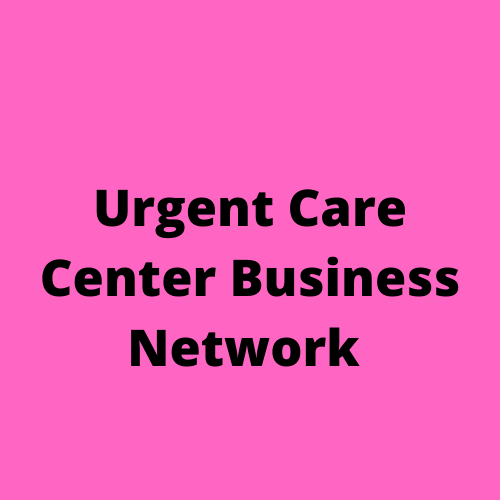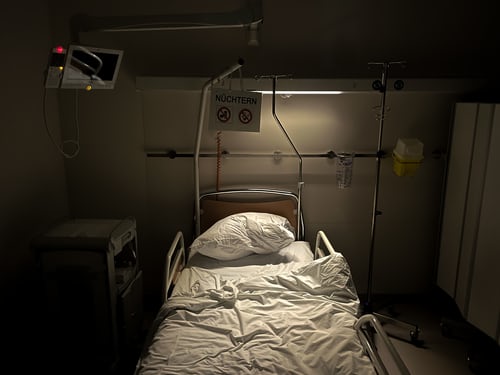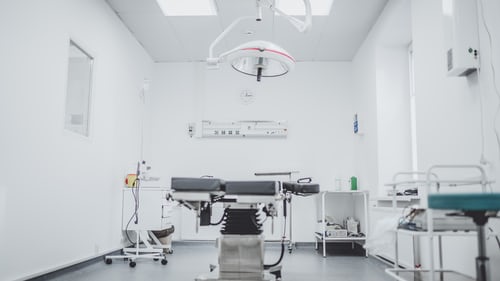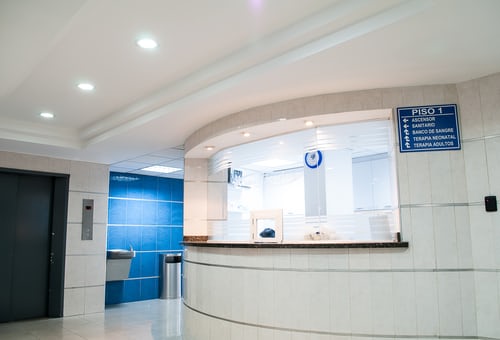

Urgent Care centers act as an interface between general family medicine and emergency room care. As such a major category of a primary walk-in practice, Urgent Care can treat a multitude of common acute injuries, illnesses, or conditions. As such, doctors in these settings apply all of their thorough medical knowledge to many different situations. From routine operations to major operations, from minor injuries to serious conditions requiring hospitalization, Urgent Care centers give their patients the same level of care as more upscale hospitals. When researching a primary care center, it is important to ask about the history of the facility.Urgent Care Centers are often thought of as walk-in clinics, but they also have the same "one stop shop" for their patients that a traditional medical office has. Patients fill out a patient medical record prior to receiving routine procedures and receive scheduled appointments as needed. Often, patients can schedule an appointment for a particular procedure at the Urgent Care Center after their primary care doctor has recommended it. This scheduling flexibility is especially helpful for long-term patients who are unsure about their next step in a treatment regimen.In addition to their on-site history of patients, Urgent Care centers should also offer a well-rounded educational program. The Urgent Care physician should be able to present a complete range of healthcare services and answer any questions patients may have.
The curriculum should include emergency care services and pediatric, maternal/child, and adult health services, along with any specialized education required by the patient. For example, prenatal services should be offered as well as breastfeeding support. Any information about immunizations should be listed on the emergency care card. Furthermore, the Urgent Care Center should have a well-developed website that includes an emergency telephone number and an information line for parents to call if they have any concerns about their child's health.The majority of Urgent Care Centers offer patients the option of in-clinic care or walk-up care. Both styles of patient care are similar in that patients visit an office, receive specific instructions about their medications and symptoms, and then usually proceed to their Urgent Care Center appointment. However, some Urgent Care Centers differ when it comes to the manner in which patients are admitted and when they are released from the facility. Most Urgent Care Centers prefer in-clinic care, because it offers them more control over the overall process. During in-clinic care, patients are admitted and monitored by a physician.
Once the doctor determines that the patient can be safely transported to the Urgent Care Center, the physician orders that the patient be admitted - at which point the physician can take over the monitoring and medication process.When patients have completed their in-clinic hours and are discharged from the Urgent Care Center, they typically go home on their own, accompanied by their primary care physician. If the primary care physician recommends that the patient return to the Urgent Care Center for a follow-up appointment, he or she may also instruct the ER doctors to transport the patient there. However, if the patient does not need to be in the Urgent Care Center for an extended period of time, the primary care physician will order that the patient be released from the ER, without providing details as to the reason for the patient's admission. In most cases, the patient is allowed to drive themselves to the nearest hospital, but Urgent Care Centers may require that the patient surrender their car keys to a supervisor before they are allowed to leave the ER. In some instances, patients are advised to surrender their vehicle keys to a police officer in case of an emergency.Dr. Sch Schmidt believes that there are many benefits to placing an emergency physician in an Urgent Care Center. For example, "ER doctors can collaborate with other health professionals, including physicians, nurses, pharmacists, and dietitians, and can quickly apply for reimbursement from Medicare Part B," according to an article published by the American College of Obstetricians and Gynecologists (ACOG). Furthermore, these physicians can also provide patients with medication refills in an urgent care center environment, according to a separate ACOG article. In addition, if patients already have prescription medications in their hands, waiting in an ER is not only inconvenient but potentially embarrassing for those individuals.

An urgent care center is usually a walk in clinic focused specifically on the delivery of specialized medical care for small injuries and illnesses without an ambulance or other medically sound facility. Such other names for such type of centers are, but not limited to, urgent care centers, out-patient clinics, and locum tenens.It's important to understand that instructions take precedence over anything else. So, when preparing for your urgent care visit, please make sure that you follow all of the following instructions from the very start: When you arrive at the medical professional's office, say "Follow me" at every step of the way. This means that even if you're only a few steps away from the front door, as soon as you stop, say "Follow me" and walk directly towards the front desk.One important reminder about doctors and healthcare providers is that they aren't required to say anything to you when you visit them. However, it can be beneficial to take down notes on anything that is said. Take notes on your healthcare provider's voice and manner, as well as any discussions that may transpire between you and your doctor. It is also important to keep a note of the doctor's name, phone number and address in case something about your treatment needs to be forwarded to another office. All these things can be found on your medical card.For those who need urgent care but have insurance, many clinics offer walk-in clinics. However, it is a good idea to find out beforehand how walk-ins work at the clinic and whether or not the insurance will cover the cost of your treatment.
There may be a limit to how much each patient is able to pay out-of-pocket. Also, be aware that just because the office does not accept insurance, does not mean that you can be charged less for your treatment. Many medical facilities only take cash, and even then the rates are often quite low.If you are worried about being charged more for your medical procedures at an urgent care center than you would at a regular doctor's office, there are a couple things that you can do to minimize the difference. First, be sure that you ask your doctor about any discounts that he or she may offer for your insurance. Sometimes, such discounts will be automatically applied when you file for insurance, especially if you are seeing the same doctor on a recurring basis. If you tend to visit the same urgent care center on a regular basis, try calling around to various offices to see if you can find any coupons or special deals. In addition, some clinics offer cash back or rewards programs for patients who bring in their own medical procedures or prescriptions, or who agree to pay a copayment.Don't be afraid to seek out the help that you need.
Even when you feel uneasy about asking for help, it is always better to be safe than sorry. Even if you go to an urgent care center instead of a regular doctor's office, make sure that you ask about emergency room privileges before you have any problems. These are credentials that you won't need to show, but they could save your life in the event of a serious health crisis.

The major difference between urgent care center and an acute care center is that an urgent care center is often a private part of a larger hospital. Unlike acute care where patients are seen within a set period of time, urgent care centers see patients as quickly as possible, often within the same day. This means patients have their urgent care center doctor look at their health as soon as possible and recommend treatment as needed. This is obviously a great benefit to patients and allows them to get better quicker.The other difference is that urgent care facilities often have more advanced diagnostic equipment and other high-tech devices available on-site. This means that patients have a better chance of being diagnosed early and treated properly. This can mean the difference between life and death for some patients, depending on their medical condition. It is also sometimes possible to be sent home from an ER when there is no need for more medical attention at the moment, so this makes it easier for patients to recover while still being kept as comfortable as possible. This may also be an advantage in terms of transporting patients between centers.Other advantages include: fewer absences from work, fewer days off sick, less waiting time when seeing physicians, and the possibility of lower medical bills. As with any type of major surgery, intensive procedures may need to be scheduled for a time during the patient's recuperation.
This can take a few weeks or longer, depending on the medical condition of the patient and their recovery schedule. As such, some urgent care centers may not allow patients to return right away to the medical care facility after having had their initial procedure, as it may be too risky if the patient's initial condition worsens and requires more intensive care.An urgent care center can provide much of the same medical treatment as a primary care physician does, except in some instances. In many cases, urgent care centers are staffed by both a primary care physician and an ER doctor. In many cases, a primary care physician is the best option for a medical condition that has caused the patient to come to the ER, as he or she will already have a good rapport with the patient and the attending ER doctor. This can help prevent the possibility of any unnecessary exposure to an allergic drug, anesthetic agent, or other pharmaceuticals that may be harmful or toxic to the patient's overall health.Most ERs at urgent care centers also have full-time nurses on staff. This helps to cut down on the amount of times that a doctor must wait on hold with a patient while waiting for a nurse to arrive on the scene of a cold. Such clinics can be especially helpful for children, who tend to get sicker quicker than most adults. Some clinics even have pediatric doctors on staff, which can be an excellent resource for parents whose children suffer from acute respiratory conditions such as asthma. Such doctors are trained to treat these patients quickly, efficiently, and at lower costs than a primary care doctor.
In the event that a patient comes to an urgent care center ER with a medical problem, instead of waiting on hold with a triage nurse, the patient can get help right away. Most ERs have video conferencing equipment so that patients can talk face-to-face with a doctor without having to wait on hold for long periods of time. A doctor can assess a person's condition and recommend the most appropriate treatment, which may not be administered via video. Many ERs also offer patients the option of viewing digital X-ray images to see what kind of damage has been done to a patient's body. Digital imaging is much more reliable than any kind of film imaging, as it provides a clearer image of what is going on inside of the body.
Member Spotlight
CHKD Pediatric Urgent Care | Chesapeake
817 Volvo Pkwy, Chesapeake, VA 23320
(757) 668-4630
https://www.chkd.org/Locations/Urgent-Care/Volvo-Parkway/
https://goo.gl/maps/dXhmDE9VwrwM89hJ8
Chesapeake children's urgent care centers are the places where your child should go when he or she needs attention in a fast manner. The doctors here treat seriously ill children in less than thirty minutes. Your child will be rushed to the hospital once the doctors determine that your child's condition is critical. However, you can also send your child to this center on his or her own. This center has been known to provide excellent treatment to kids who do not require the urgent care of a hospital.
A Urgent Care Center Business Network professional can provide a wealth of experience and insight into what is needed in the market place to meet the needs of families and individuals with a chronic illness. A professional is able to provide a comprehensive service from home, serving as a connector between families and the professionals who care for them day in and day out. The professional may have years of experience in a particular field or they may have many years of experience. Regardless of the experience, it is important to recruit an experienced professional with a network that can grow with the organization and make a positive impact.